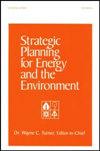在南亚国家实现可持续发展目标7的道路上:回顾性研究
Q3 Environmental Science
Strategic Planning for Energy and the Environment
Pub Date : 2023-02-15
DOI:10.13052/spee1048-4236.4031
引用次数: 0
摘要
南亚国家的人口占世界人口的五分之一,却生活着世界上37%的贫困人口和50%的饥饿儿童。本地区面临着巨大的发展和基础设施挑战。本文调查了南亚国家在可持续发展目标7方面的进展,该目标与所有人获得现代能源有关。本研究还强调了南亚国家在可持续发展目标7方面进展缓慢背后的重大问题和挑战。这项研究表明不丹和印度是表现最好的国家;然而,在所有其他南亚国家中,巴基斯坦和阿富汗在可持续发展目标7方面的表现较差。人们还注意到,南亚国家对可再生能源的关注很狭隘。南亚国家将解决他们的能源短缺问题,并通过使用可再生能源而不是进口碳氢化合物来节省大量资金。南亚国家必须使其主要能源消费模式多样化,以实现可持续发展目标7。双方可以在政策、经济、技术和信息等层面解决各自的能源问题,促进跨境能源贸易。本文章由计算机程序翻译,如有差异,请以英文原文为准。
En Route for the Accomplishment of SDG-7 in South Asian Countries: A Retrospective Study
With one-fifth of the world’s population, South Asian nations are home to 37 percent of the world’s poor and 50 percent of the world’s hungry children. This region experiences enormous development and infrastructure challenges. The paper investigates the progress of South Asian countries on Sustainable Development Goal-7, which is associated with access to modern energy to all. The present research also highlights significant issues and challenges behind the slow progress of South Asian countries on SDG-7. This study indicates that Bhutan and India are top-performing countries; however, Pakistan and Afghanistan are lower-performing countries on SDG-7 among all other South Asian countries. It has also been observed that South Asian countries have a narrow focus on renewable energy. South Asian nations will address their energy shortages issue and save a lot of money by using renewable energy instead of importing hydrocarbons. South Asian nations must diversify their main energy consumption patterns to achieve SDG-7. They may address their energy concerns at the policy, economic, technological, and information levels and boost cross-border energy commerce.
求助全文
通过发布文献求助,成功后即可免费获取论文全文。
去求助
来源期刊

Strategic Planning for Energy and the Environment
Environmental Science-Environmental Science (all)
CiteScore
1.50
自引率
0.00%
发文量
25
 求助内容:
求助内容: 应助结果提醒方式:
应助结果提醒方式:


